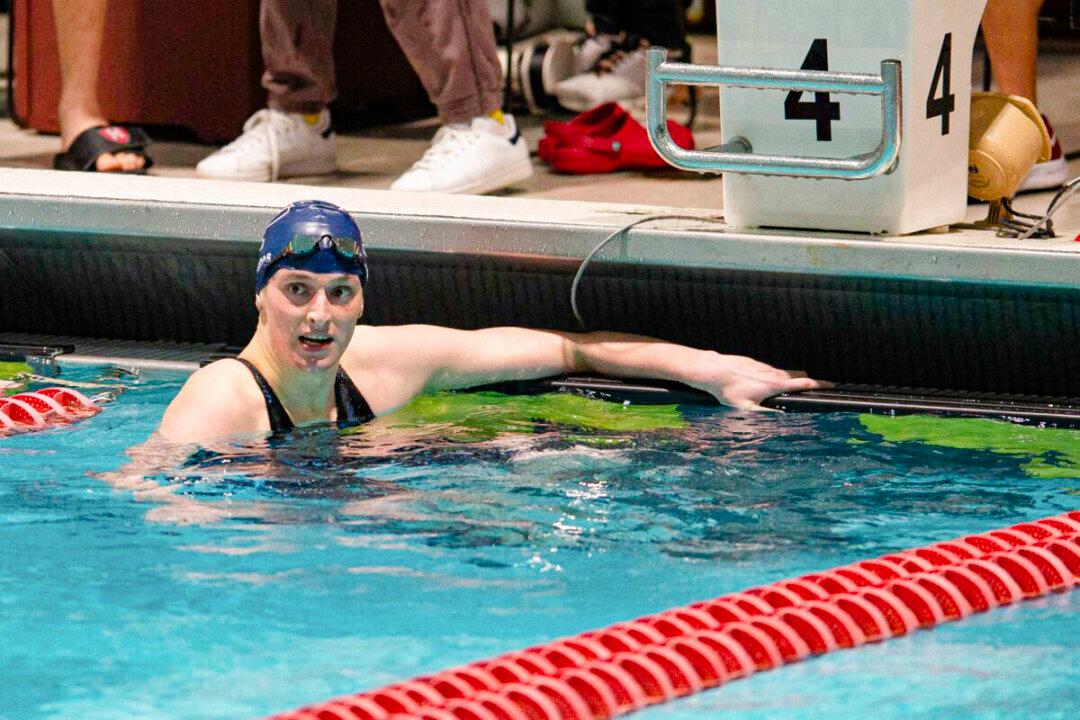An international court that arbitrates disputes in elite sports has ruled against transgender swimmer Lia Thomas in a legal challenge to rules preventing female-identifying mature males from competing in women’s events.
The Swiss-based Court of Arbitration for Sport (CAS) on June 10 dismissed Lia Thomas’s January request to overturn a June 2022 decision by World Aquatics to ban transgender swimmers who have been through male puberty from competing in elite women’s races.





